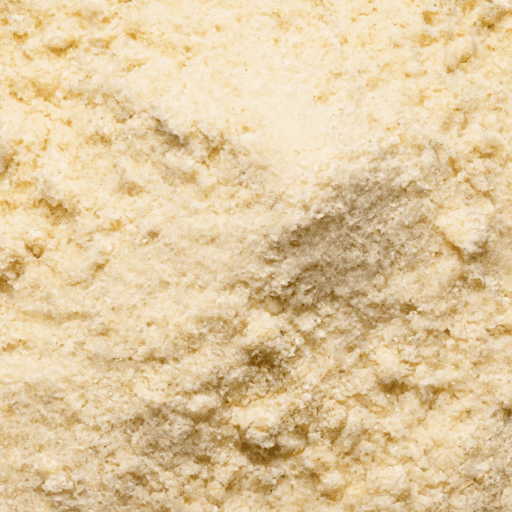Discover the Versatility and Nutritional Power of Amaranth Stone Ground Flour
If you’re looking to add a touch of wholesome goodness to your culinary creations, Amaranth Stone Ground Flour is a must-try ingredient. With its delightful taste, impressive nutritional value, and fascinating history, this flour is sure to elevate your cooking to new heights.
Unveiling the Unique Taste
Amaranth Stone Ground Flour boasts a slightly nutty flavor, which adds depth and character to any dish it graces. Its taste is often described as earthy, with a hint of sweetness, making it an excellent choice for both sweet and savory recipes. Whether you’re baking bread, preparing pancakes, or experimenting with homemade pasta, this flour will lend a distinct and enjoyable flavor profile to your creations.
Exploring Culinary Uses
Thanks to its versatile nature, Amaranth Stone Ground Flour can be used in an array of culinary applications. It acts as an exceptional gluten-free alternative to traditional flours, making it a fantastic option for those with dietary restrictions or gluten sensitivities. Its binding properties make it ideal for baking cookies, muffins, and cakes, ensuring a delicate texture and subtle flavor that will leave your taste buds craving more.
Moreover, this flour shines in gluten-free pasta recipes, offering a unique chewiness that complements a variety of sauces. Its ability to absorb liquids well also makes it a fantastic thickening agent in soups, stews, and sauces. If you’re feeling adventurous, you can even try incorporating it into your homemade veggie burgers or as a coating for crispy chicken tenders.
Power-Packed Nutrition
Apart from its delectable taste and culinary versatility, Amaranth Stone Ground Flour boasts an impressive nutritional profile. It is a rich source of protein, containing all the essential amino acids needed for optimal health. This makes it an excellent choice for vegans, vegetarians, and anyone looking to increase their protein intake.
Additionally, this flour is packed with essential minerals such as iron, calcium, magnesium, and phosphorus, which play vital roles in supporting overall well-being. Notably, amaranth is one of the few plant sources that contains a significant amount of lysine, an essential amino acid often lacking in common grains.
Moreover, the creamy white texture of stone ground flour signifies minimal refining, ensuring it retains higher levels of fiber and beneficial fats compared to refined flours. This means you can enjoy the added benefits of increased satiety and improved digestion when incorporating this flour into your favorite recipes.
A Glimpse into History
Beyond its culinary allure, Amaranth Stone Ground Flour carries a rich historical significance. Dating back thousands of years, amaranth has its roots in ancient civilizations such as the Aztecs and Incas. These cultures recognized its exceptional nutritional value and revered it as a sacred food.
Interestingly, amaranth was often used in religious ceremonies and celebrations due to its symbolic significance. It was considered a symbol of immortality and believed to possess spiritual powers. Even today, it continues to hold cultural significance in various traditional dishes and festivities.
Let Your Culinary Journey Begin
With its distinct flavor, versatile applications, nutritional prowess, and rich historical background, Amaranth Stone Ground Flour is undoubtedly a treasure in the world of cooking. Its ability to enhance both taste and nutritional value makes it an indispensable ingredient for those seeking to make every meal a truly enjoyable and healthful experience.
So why not embark on a culinary adventure and start incorporating this unique flour into your recipes today? Let the earthy and nutty tones of amaranth flourish in your kitchen, adding a dash of wholesome goodness to your creations. The possibilities are endless, and the rewards are truly delightful.
Amaranth Stone Ground Flour
Origin: Amaranth is an ancient seed native to Central and South America, with a long history of cultivation by the Aztecs and Incas. The grain-like seeds of the amaranth plant were used as a staple food in these cultures, and the flour made from its seeds is still widely used today.
Common Uses: Amaranth stone ground flour is commonly used in gluten-free baking, as it provides structure and a subtly sweet and nutty flavor to baked goods. It can be used alone or blended with other gluten-free flours to make bread, pancakes, muffins, cookies, and more.
Nutritional Benefits: Amaranth stone ground flour is highly nutritious, packed with essential vitamins, minerals, and protein. It is an excellent source of iron, magnesium, and phosphorus, and contains significant amounts of calcium, potassium, and zinc. This flour is also rich in dietary fiber and is considered a complete protein, containing all the essential amino acids.
Unique Properties: One unique property of amaranth stone ground flour is that it contains a type of protein called “glutelin.” This protein is not found in wheat, rye, or barley, making amaranth an attractive option for those with gluten sensitivities or celiac disease. Additionally, amaranth flour has a high concentration of the amino acid lysine, which is lacking in many other grains.
Historical Significance: Amaranth has a storied history and cultural significance. In pre-Columbian times, the Aztecs considered amaranth to be a sacred crop and used it in religious ceremonies. When the Spanish conquistadors conquered the Aztecs, they banned the cultivation of amaranth due to its religious association, considering it “pagan.” However, amaranth survived in hidden cultivation and is now widely cultivated and consumed worldwide.
Please note that while amaranth stone ground flour has various nutritional benefits, it may not be suitable for everyone, especially those with allergies or sensitivities. It is always advisable to consult a healthcare professional before making significant dietary changes.




Use the share button below if you liked it.
It makes me smile, when I see it.